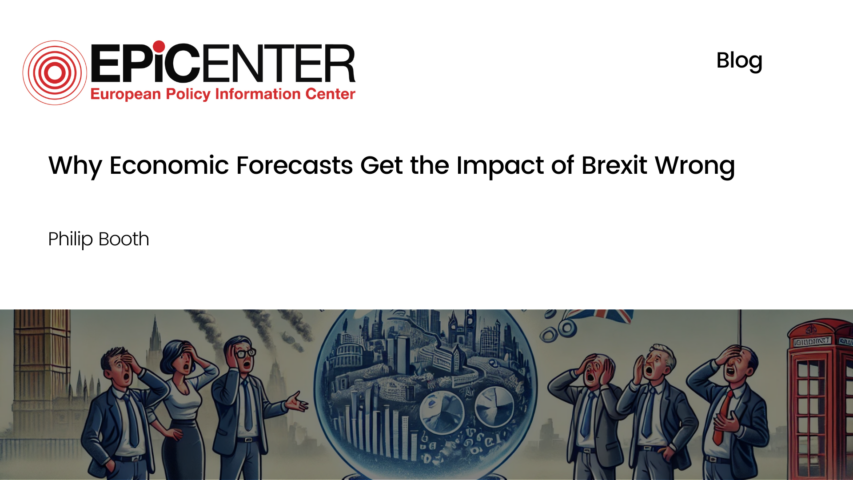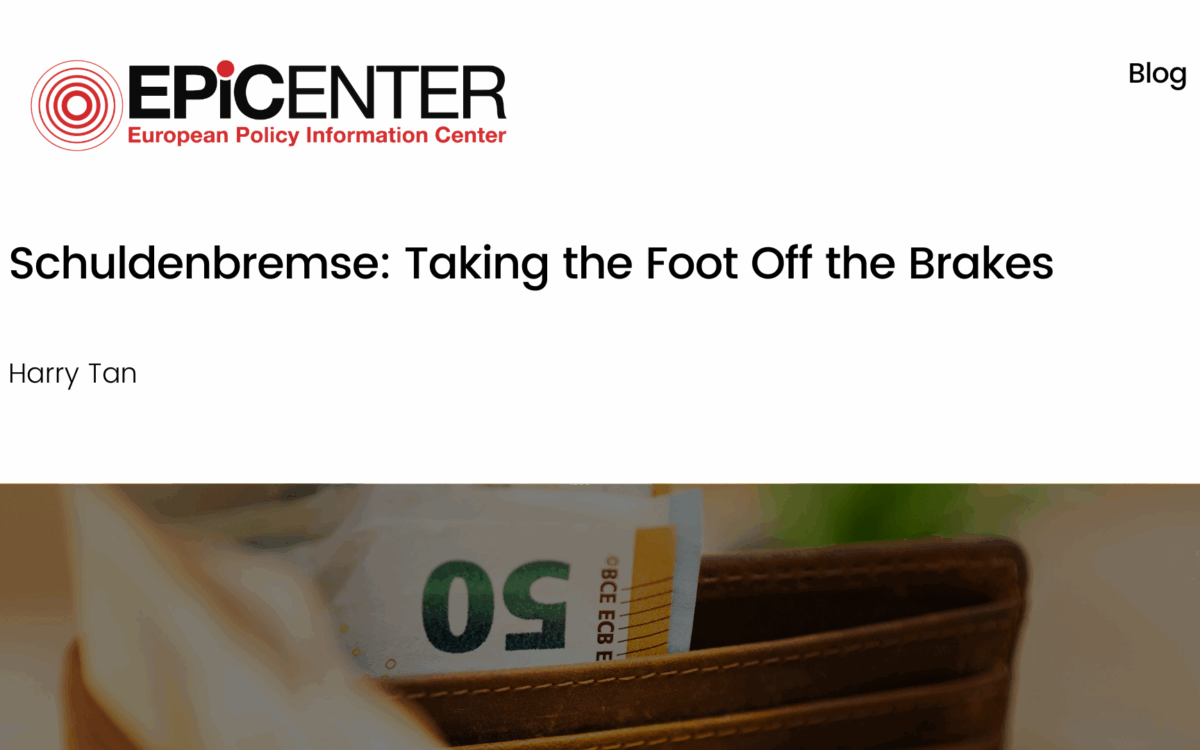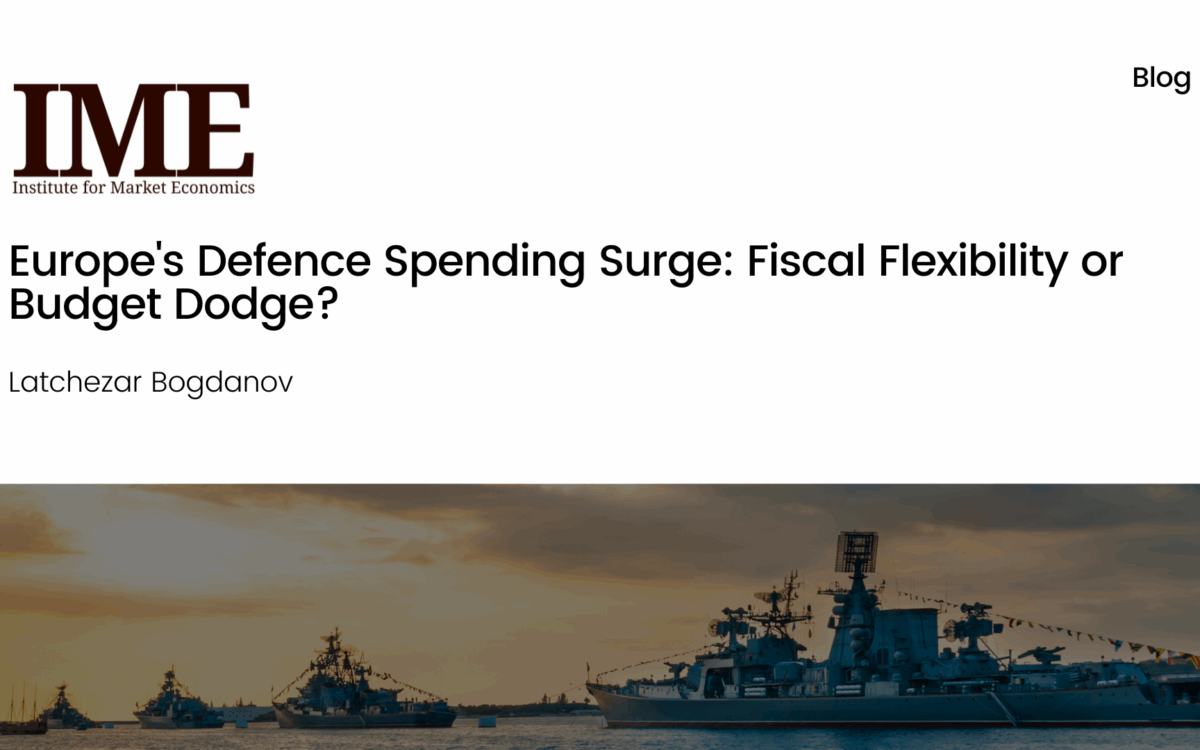Why Economic Forecasts Get the Impact of Brexit Wrong

Why Economic Forecasts Get the Impact of Brexit Wrong
Professor Philip Booth // 20 April 2017
The economics profession has not exactly covered itself in glory in recent years. Few people forecasted the crash. Forecasts of economic recovery after the crash were dreadful. Neither the Office for Budget Responsibility nor the Bank of England have had a particular good recent record and, also, the widespread forecasts of doom and gloom in the event of a Brexit vote have proven to be wide of the mark.
There is a reason for this. Most economists tend to put sophistication above broad principles. As such, they develop complex models that are designed to forecast with a great deal of accuracy what will happen if the current conditions broadly carry on or if there are changes in economic circumstances that can be handled within the model. When things happen that are outside the scope of forecasters’ models, they tend to flounder. This is especially so given that the apparent mathematical rigour of a modern economist’s training has led them to be ill-equipped (in my view) to think through issues in detail conceptually. However, for the record, let me say a little about what some forecasters have said about Brexit.
The Treasury Model suggested that, by 2030, GDP would be over 6 per cent lower if we left the EU and then negotiated a separate trade agreement with it. This is about £4,000 per household. However, the assumptions behind this modelling have been widely criticised. The way the Treasury models trade would not have predicted changes in trade patterns that have happened in recent years and the model essentially assumes that politicians do absolutely nothing to react to the new policy environment.
The second set of forecasts noted here is wildly optimistic about Brexit. I don’t agree with the author of the forecasts despite the fact that I published the book. However, I do like his approach which provides quite a good way of conceptualising the issues.
Patrick Minford suggested that there would be gains from leaving the EU in terms of our net contribution to the EU’s budget and the removal of the EU’s protectionist trade barriers – the EU is a free trade area and customs union and is quite protectionist, especially in relation to products that tend to come from poorer countries – of around 4.5 per cent of national income. We would obtain these gains if we did not put up trade barriers to replace those imposed around the EU. So we would have cheaper food, clothing etc.
I think this is relatively uncontroversial. The controversial bit is that Minford then assumes there would be huge gains from leaving the EU because we would no longer have to suffer big increases in regulation and future bailouts of the euro zone if we were not members of the EU. Secondly, he assumes that there are no losses as a result of leaving the single market or from the trade barriers that the EU might put up when we leave. The second issue is complicated, but it is probably fair to say that Minford has been unrealistic and too positive about leaving the EU in the same way that the Treasury has been unrealistic and too negative.
Behind the two diverging forecasts is a debate about future trade patterns. The general gains from trade are lower prices for consumers and more opportunities for exporters. The importance of trade for consumers is often ignored leading to some dead ends in the debates we have about Brexit. Also, in the long term, production tends to take place where it is more efficient and that raises living standards.
According to the WTO the two major trade agreements of the 1990s — the WTO Uruguay Round and the North American Free Trade Agreement between the US, Canada, and Mexico — generated increased purchasing power of $1,300 to $2,000 per year for the average American family of four. The European Union argues that the creation of its single market led to the average European consumer gaining by €600 a year.
So, what will happen to trade when we leave the EU?
Unlike in the US and unlike in the UK with regard to migration, there is very little pressure, thank goodness, to adopt a protectionist position post-Brexit. The key issue really is how our trade position changes. Currently we are in a customs union where there is total free trade within the EU but trade barriers around the outside. For example, the EU applies a tariff of 17 per cent to footwear, 15 per cent to bicycles, 12 per cent to many basic foods and 10 per cent to motor cars. There are some exemptions.
When we leave, we could have chosen to effectively lock in the current position by joining the customs union and the European Economic Area – nothing much else would then change. It has been said that this will not happen, but we could negotiate a settlement that leads to some of the features of the customs union being kept.
Alternatively we could, and should in my view, try to negotiate some other settlement that allows us to remove the tariffs that the EU imposes and develop freer trade with, for example, North America, India and other areas and countries. We could, indeed, just move to unilateral free trade, New Zealand style.
This is, I think, exciting. I don’t think Christian leaders have anything especially interesting to say on the details of whether we leave the EEA or the Customs Union. However, the increased ability to have deeper economic relationships with other countries which membership of the EU has made more difficult because all 28 countries have to negotiate trade agreements together is a great opportunity for developing international economic relationships.
The removal of tariffs will be a greater benefit for UK consumers. As the UK does not have strong import-competing industries where some of the highest tariffs exist, this will not even cause difficulties for British businesses. Where there will be problems is in relation to regulatory barriers to trade.
The purpose of the single market, in effect, is to unify regulations so that trade can take place freely with the same regulations being used in each country. The huge increase in regulation, especially in fields such as finance, has made the development of free trade much more complex. Trade deals are several thousand pages and the process can become captured by interests groups.
Ideally, especially when it comes to services, countries need to become more relaxed about regulation when it comes to trade. In practice, it is difficult to see this happening. Not being in the single market may therefore make it more difficult for UK companies to export services. Against this, completing trade deals in this complex world within one country rather than as one of 28 countries should be more straightforward.
Against this background, and with the election of Donald Trump, I also believe that the UK must make the case for free trade globally. We should cast our minds back to the very rapid damage done by the Smoot-Hawley tariff act in the 1930s to see that one should not be sanguine about the prospects for free trade.
EPICENTER publications and contributions from our member think tanks are designed to promote the discussion of economic issues and the role of markets in solving economic and social problems. As with all EPICENTER publications, the views expressed here are those of the author and not EPICENTER or its member think tanks (which have no corporate view).



